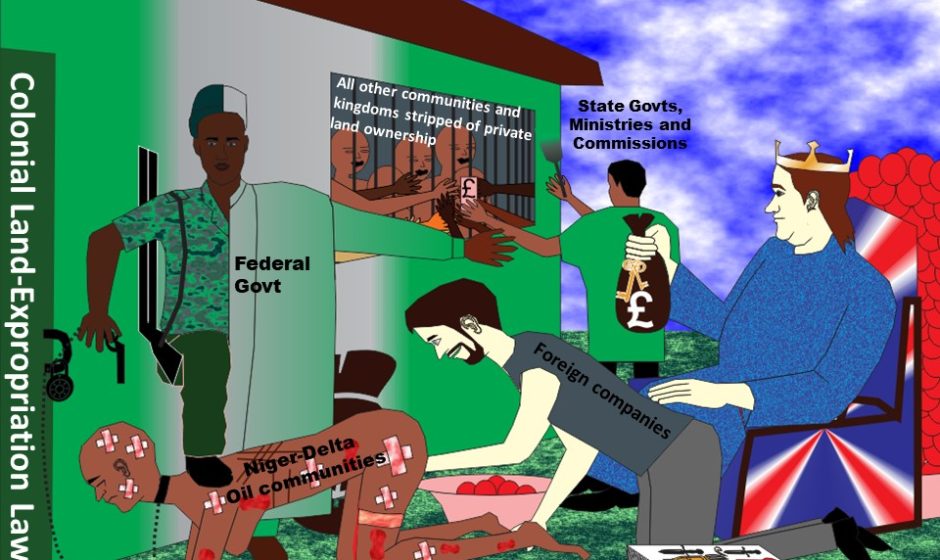In preparation for the general election, a renowned Bishop warned that those who do not vote in the upcoming election should not complain of bad governance. This call for electoral participation – by His Grace, other Bishops, pastors, religious, experts, traditional and community leaders – follows the gospel demand to renew the face of the earth. Yet, the verdict that those who do not vote in this colonially-imposed and violently sustained system should not complain may be incorrect.

As a crowning element of democracy, voting in elections presupposes a consented union and agreed destination to be led to. It is like a group of people who agree to go on a journey together, and simply vote on who drives them to their common destination. Without a consented union and agreed destination/purpose, voting simply becomes a shallow routine without roots or lasting effect.
Like other Sub-Saharan African countries, European colonialists created Nigeria by invading and imposing land-expropriation law on various conflicting and unconsenting communities for harvesting the best of human and natural resources. This is the civil law that cancelled various communities’ and individuals’ private land/property ownership, and turned people to official tenants or illegal occupants on their ancestral lands. This law has been steadily edited and transferred by newer regimes in line with the colonial aim. And as snake venom keeps killing its victim even when the snake has gone, this colonial law keeps blocking political and economic development in Africa, despite the claim of independence.
The continued voting without addressing this colonial law, with its supporting ideology and structures, seems like an indirect reinforcement of colonial bondage. It is like allowing victims of robbery to choose who controls their seized property, or allowing captives to elect their prison guards, warders, representatives and managers without freedom to own/control their property or destiny. So, the claim that people’s vote is their highest power when their land rights are still stripped by colonial law is a big falsehood for keeping a stripped people as onlookers who can only vote to watch as politicians, foreign firms and local business allies control their lands, resources and destinies. And when a desired candidate fails to win or to perform economic magic, people keep lamenting and enduring for another 4,4 years to vote in a new ‘messiah’ or lesser evil to still supervise the colonial project. This confiscatory power and system is responsible for the poverty, desperation and sycophancy seen in African elections, governance and coups.
Without seeing its root effect on both the politicians and the people, and focusing to dissolve the colonial land law (and ideology), voting may never solve the problem of underdevelopment in Nigeria and Subsaharan Africa, despite the kindness or prudence of any new regime. So, despite his fatherly concern, the Archbishop’s verdict that those who do not vote in this system of rotational dictatorship cannot address the system and its effects, may not be correct. Instead, the religious and community leaders (even NGOs) need to create more programs and intercommunal contests to educate, inspire and support people of various communities to look inwards so as to officially and nonviolently own and develop their private lands, human and natural resources for industry, free trade, consented nationhood and liberation of the Black man worldwide.
May God continue to bless His Grace the Archbishop, and all men and women of goodwill who seek a future of freedom, dignity and prosperity for Africa.



